
Chroma, the UK's only queer literary and arts journal, has reviewed Life As We Show It: Writing on Film, edited by Brian Pera and Masha Tupitsyn:
. . . Life as We Show It is everything that being published by City Lights suggest it will be: a diverse range of voices from New Queer (mainly West Coast) writing, including fan favourites Dodie Bellamy, Kevin Killian, Rebecca Brown, Lynne Tillman, Robert Glück, David Trinidad and Abdellah Taïa. . .
It’s an exemplum of how swiftly the avant-garde is forgotten because it doesn’t circulate in the same way as mainstream cinema, and – on the showing of Life – because Americans rarely have access to anything outside their own pop culture at an impressionable age. This is the post-avant garde generation, whose voices are largely ironic and mainly autobiographical, “viewing life through screen-tinted glasses,” to quote the blurb. Slanted through the prismatic lens of (for the most part) popular American cinema, the book suggests a febrile (perhaps fatal) postmodernity where reality is framed by, and processed through, its simulacral representations in pop culture.
The finest pieces in the book – by Bellamy, Killian, Brown, Taïa and poet Fanny Howe – step beyond that Gen X campness, practised to the highest order in a sonata pathetique on Elizabeth Taylor by Wayne Koestenbaum. Killian takes up, in a surprisingly critical manner, the hints of masturbation in “screen-tinted glasses” and castigates the production and spectatorship of violent and abusive pornography through his clever and well-reasoned take on Nathaniel Hawthorne’s The Tale of Goodman Brown (one of the few literary references in this work of literature). Taïa and Howe both address films from beyond the (anti-) canon of popular American cinema: Taïa writes movingly, and erotically, about encountered gay desire through an obscure French film broadcast on late-night Moroccan TV while his mother sleeps right behind him, while Howe encounters Stalinist Russia at its bleakest in “After Watching Klimov’s Agoniya.” These pieces have a socio-political context, clearly but never didactically established, in which cinema figures both freedom of representation and the hope or desire for change.
Bellamy and Brown show that’s not an impossible effect to achieve when writing about American cinema, and Richard Grayson’s touching “The Forgotten Movie Screens of Broward County” queers the multiplex in a charming, if slightly sentimentalised, way. . .
You can find the rest of the review by Sophie Mayer here.
* * * * *
Fanzine also reviewed Life As We Show It and listed it as "recommended":
Lots of people write about film. In fact, one of the easiest things to do might be to write about some movie you just watched, your critique, your interpretation, your blog. So what makes this book special, aside from the fact that several of our lovely contributors wrote for it? Well, this isn't just a book on film and feelings, it's actually kind of haunting in strange and lingering ways, like a silent, but heavy presence in the room. Kevin Killian's "Young Goodman Brown Effect" is quintessential Killian, tracing a midnight walk with the devil with his own journey into dark corners of the Internet, while Donal Mosher ponders the crucifix scene in The Exorcist while keeping a diary as he films a documentary about his family. Myriam Gurba recounts horrific parallels as she traces, chronologically, her way through Larry Clark's Kids. It's all very surreal, and equally disconcerting and concrete. The pieces move like scenes and vignettes themselves, flickering and shimmering in the dark, shining in and out until one can almost hear the lead frames of the film monotonically whipping against the takeup reel in an otherwise silent room. -Michael Louie
* * * * *
On Monday, August 3, there'll be a reading at the wonderful McNally Jackson bookstore in Soho at 7 p.m. with Life As We Show It contributors Donal Mosher, Masha Tupitsyn and Richard Grayson.





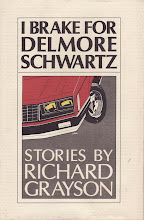
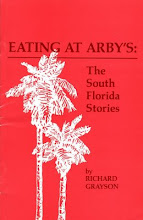
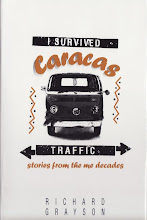


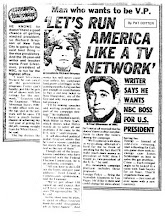







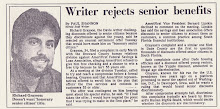








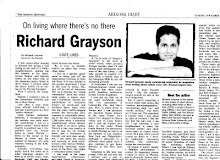




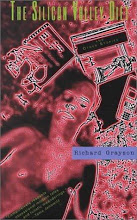

No comments:
Post a Comment